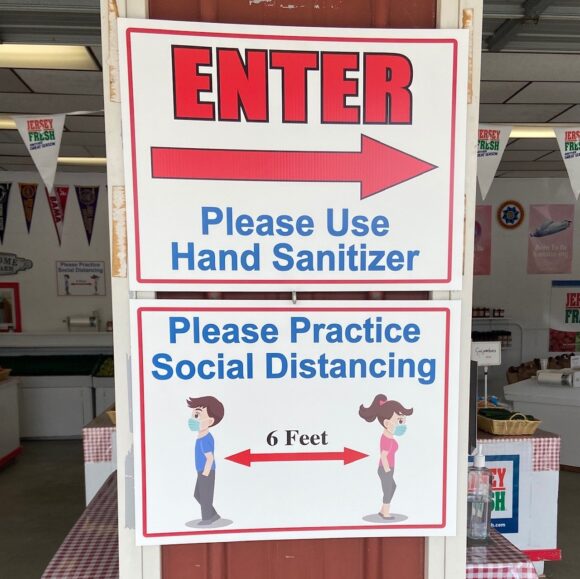Apr 28, 2020New Jersey farms seek marketing strategies to challenges of COVID-19
New Jersey farmers are among the most innovative and most productive farmers in the nation. Farming in the country’s most densely populated state in the U.S. comes with many challenges. It also comes with marketing opportunities with approximately 9 million residents in the Garden State.
The buy-local movement is not something new to New Jersey. Even before the CODID-19 pandemic, consumers eagerly anticipated fresh fruits and vegetables from farms, spanning from Sussex County all the way to Cape May County. Notwithstanding the current situation, there are excellent opportunities for New Jersey growers to sell produce direct to the consumer at on-farm markets and other outlets.
For more than 25 years, the “Jersey Fresh” program, administered by the New Jersey Department of Agriculture, has helped identify and promote locally grown farm products. With supply chains disrupted in major markets, demand for locally grown produce may well be more popular than ever.


This coming season will require alternative methods for distributing farm goods and offer unique opportunities for marketing fresh produce and other farm products, amidst social distancing rules. Farmers are already employing innovative approaches like offering curb-side pickup at farm markets, delivery options, pre-packaged fresh products for fast in-and-out shopping, and other “out-of-the-box” methods to enhance customer service and ease shopping anxiety.
Community supported agriculture (CSA), also known as membership-buying programs on farms, will most likely increase in popularity with the “new normal.” The traditional CSA model of scheduled pick-ups or deliveries of pre-boxed regular (generally weekly) allotments of assorted produce and other products offered via the CSA model may be the best option as it help to promote social distancing. Other versions of the CSA method can also be successful with pay-as-you-go models instead of up-front membership fees. Customers may find this ready-to-go marketing option more appealing, especially since people are trying to source product with minimal contact.
Rutgers Cooperative Extension agricultural agents William Bamka and Stephen Komar wrote a fact sheet on the CSA model, titled Community Supported Agriculture: A Farmer’s Overview. This information explains the CSA marketing model and offers suggestions for farmers on how to manage a CSA business.
With large produce-growing regions in Florida and California struggling right now to find markets for harvested crops, some people are questioning why are crops being dumped and destroyed when there are shortages in grocery stores. The short answer is that there is a drastic decrease in demand from the food service industry. Some growers in these states produce crops solely for restaurants or institutional food systems sold through different channels and often not packaged for retail sales. With these markets disappearing as households were forced to shelter-in-place along with widespread school closures, this farming industry that provided mainly for food service outlets was unable to quickly make major adjustments to enter the retail market system.
Since most New Jersey growers are diverse in their crop offerings and not as dependent on the food service market, farmers in the Garden State may not see these devastating losses. Additionally, farmers in NJ are just starting to plant produced slated to summer and fall harvest. This positions Garden State farmers to adjust cropping and marketing strategies for the 2020 season.
To find your local producer of fresh produce, visit the Find Jersey Fresh webpage. Follow your favorite local farms on social media and check their websites. Online outlets are the best way to know what is currently available and a great way to learn more about what it takes to keep the garden in the Garden State!
– Michelle Infante-Casella, Rutgers Cooperative Extension of Mercer County.
Photo at top: Farm markets are offering their own farm-grown products and are supplementing with other items to help local residents source essential items.















